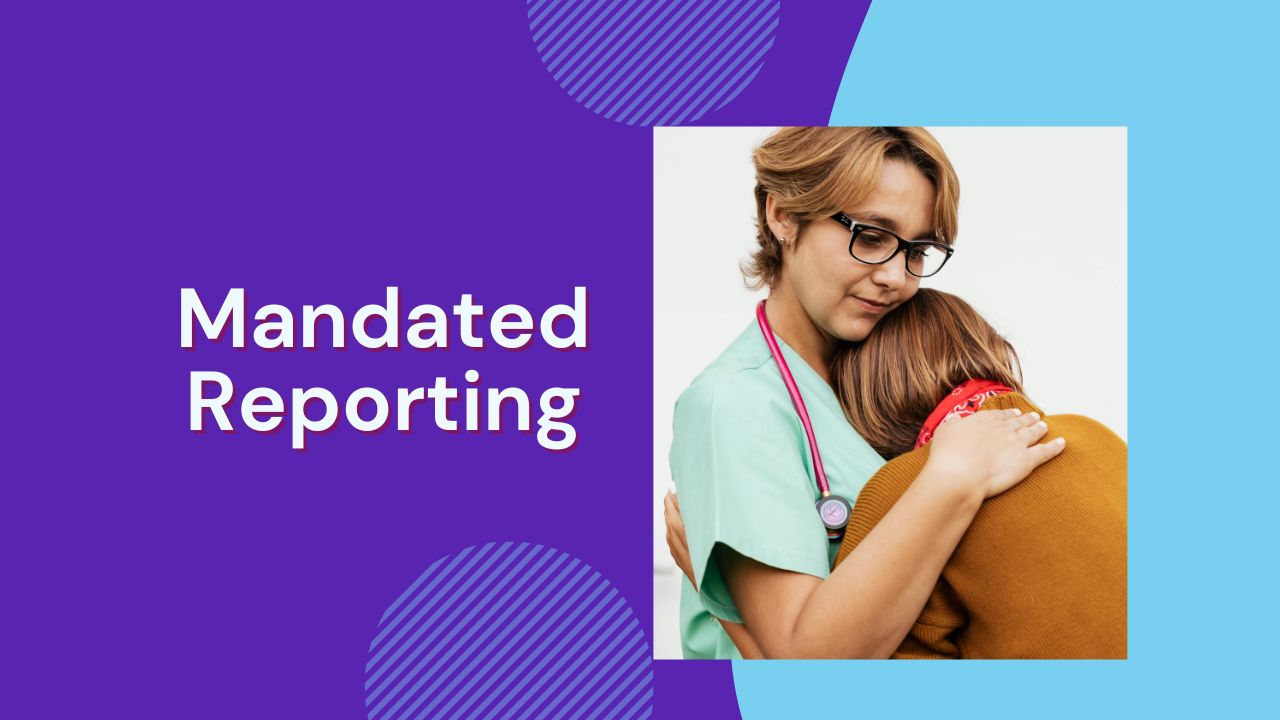The healthcare industry is a complex and fascinating machine with many systems and parts to serve individuals, families, and the population as a whole. The significance of the healthcare occupations that help to provide direct patient care should always be considered and are worthy of attention and appreciation.
The healthcare industry is a complex machine with many systems and moving parts to serve individuals, families, and communities.
Direct patient care is the bedrock for all other healthcare interventions and treatments, and as such, we are shining the spotlight on the medication aide.
What is a medication aide or medication assistant?
Typically, a medication aide is a person who has completed specific state-approved training and passed their state’s certification exam in order to administer medications to patients.
Often, this person is already an experienced certified nursing assistant (CNA). This clinical role operates under the supervision of a registered nurse (RN) or licensed practical/vocational nurse (LPN/LVN).
Depending on the state, medication aides may be known by different titles, such as the following:
- Medication assistants
- Certified medication aides (CMAs)
- Medication aides-certified (MACs)
- Medication technicians (med techs)
- Qualified medication administration personnel (QMAP)
What's the difference between a medication aide and a CNA?
The difference between a medication aide and a CNA is the authorization to administer medications to patients. CNAs are typically prohibited from medication administration, whereas CMAs are specially trained to do so.
It should be noted that some states may restrict medication aides to medication administration only, removing them from any direct care responsibilities.
How much do medication assistant jobs pay?
As with any occupation, salary data varies by geographic location (whether the setting is urban or rural), work experience, healthcare setting, and even supply vs. demand.
Hourly rates for this position are similar to CNA wages and typically range between $11 and $19 an hour.
Are CMAs in high demand?
Yes. In most states, the demand for nursing assistants—both with and without medication assistant training—is high, and healthcare facilities often struggle to fill these positions.
Can I take the CMA exam without going to school?
Most states require a minimum education of a high school diploma or a GED equivalent. Expect to complete a special training course for certification as a medication aide.
Some states offer medication aide candidates the option to challenge the exam instead of completing the training course.
Can you transfer your CMA license to another state?
Wondering if a CMA can work in any state? Unlike for nurses, there is no large-scale agreement or compact in place.
However, check with the appropriate regulatory agency to ask about reciprocity before giving up. Some states may have reciprocity agreements with neighboring states or condensed application processes for these situations.
Tip: Some states offer CNA reciprocity, so even if your medication aide certification isn’t transferable right away, your nursing assistant certificate may help you get to work immediately after a big move.
Can I take the CMA exam online?
Many states have enabled online testing for medication aide certification. Check with the appropriate regulatory agency in your state for details.
How to become a medication aide in your state
How you become a medication aide will depend on which state you live in. Not all states have the same steps, requirements, or processes. Therefore, we've created this state resource guide just for you.
This resource guide has been compiled based on publicly available information as of March 2025. For official guidance or case-specific questions, please contact the appropriate regulatory board within your state.
Alabama
Alabama uses the acronym MAC (medication assistant, certified). You must meet their general eligibility criteria and complete an approved MAC education program, which consists of 60 hours of theory/lab training and 40 hours of supervised clinical activity.
Find information about MAC programs and resources, eligibility requirements, and more by visiting the MAC page on the Alabama Board of Nursing website.
Alaska
At this time, Alaska does not have a mediation aide designation.
Arizona
To become a CMA in Arizona, you must first have a minimum of six months of work experience as a nursing assistant and complete a medication training program. Furthermore, you must pass the state of Arizona's CMA skills and written test.
For more information, visit the Arizona Board of Nursing website.
Arkansas
Arkansas identifies this position as medication assistant-certified. You must have at least one year of full-time and continuous prior work experience as a CNA, registration on the CNA registry, and completion of one of the Arkansas MA-C programs.
Visit the Arkansas Board of Nursing site for more information.
California
At this time, California does not have a mediation aide designation.
Colorado
In Colorado, this role is called qualified medication administration personnel (QMAP). Requirements include completing a state-approved training for medication administration and passing the medication administration certification test. Continuing education is required to maintain licensure.
QMAPs are licensed and regulated through the Colorado Department of Public Health and Environment.
Connecticut
Connecticut has the Medication Administration Certificate Program, which allows unlicensed personnel who have received certification to administer medication in certain facilities licensed by state agencies. The certification program has four parts: theory, lab, written exam, and on-site practice. Recertification is biennial.
For more information, check with the Department of Developmental Services.
Delaware
Delaware allows unlicensed assistive personnel (UAP) to be trained for limited lay administration of medications (LLAM). LLAM training requires yearly renewal. Eligibility requirements include completion of the LLAM curriculum, achievement of a passing score on the written exam, and a demonstration.
For details, visit the Delaware Developmental Disabilities Services.
District of Columbia
In Washington, D.C., there is a similar regulated and certified occupation called a trained medication employee (TMA). Eligibility criteria include completion of a specific training course, one year of clinical work experience in a program or healthcare facility, and proof of first aid and CPR training. Certification must be renewed every two years to verify approved continuing education hours.
Visit DC Health for more information.
Florida
Florida refers to these professionals as qualified medication aides (QMAs). Eligibility requirements include a minimum of one year of experience working as a nursing assistant and completion of two required training courses.
For details on how to become a QMA, contact the Florida Board of Nursing.
Georgia
To become a certified medication aide in Georgia, a candidate must be an active CNA, complete the medication aide program, and pass the state exam. The written exam must be passed with a minimum score of 80 percent in no more than three attempts and within 90 days of program completion.
For more information, visit the Georgia Department of Community Health.
Hawaii
Per the Hawaii Administrative Rules, §11-96-2, only physicians and licensed nurses in Hawaii may have medication administration responsibilities.
Idaho
To become a CMA in Idaho, you must first be a CNA on Idaho's registry and complete an accredited program.
For more information about how to become a medication assistant in Idaho, contact the Idaho Board of Nursing.
Illinois
Per Public Act 103-0886, Illinois medication aides are certified and regulated through the Illinois Department of Public Health.
Indiana
The state of Indiana uses the term qualified medication aide (QMA) for this occupation. The eligibility requirements include CNA work experience of at least 1,000 hours within the previous 24 months, authorized QMA program completion, and a state exam.
For questions, details, and a list of approved programs, visit the QMA page on the Indiana Department of Health website.
Iowa
To become a medication aide in Iowa, candidates must first complete an approved training course or pass the medication aide challenge exam. Unlike many other states, Iowa does not require previous experience as a certified nursing assistant.
For more details, visit the Iowa Department of Inspects, Appeals, & Licensing website.
Kansas
In Kansas, this role is called a certified medication aide. Interested persons must complete a 75-hour course and pass the CMA exam. Continuing education hours are required every two years to maintain the certification.
For more details on eligibility criteria and approved CMA courses, visit the Department for Aging and Disability Services website.
Kentucky
Kentucky identifies this position as a certified medication aide. The state has two tiers for this occupation: CMA I and CMA II.
For information on requirements, training programs, and certification, visit the Kentucky Board of Nursing website.
Louisiana
Louisiana refers to this occupation as a medication attendant certified (MAC). A medication attendant certified is a CNA who has completed a MAC training program. Certification is valid for one year.
For details, visit the Louisiana Department of Health website.
Maine
In Maine, certified nursing assistants who want the added medication aide designation (CNA-M) must meet eligibility requirements that include completion of a board-approved training program.
Certification and regulation of CNA-Ms is handled by the Maine State Board of Nursing.
Maryland
To become a CMA in Maryland, an applicant must first be currently employed as a CNA and be recommended for the CMA training program by the director of nursing of their place of employment. Renewal is annual in conjunction with the CNA renewal.
For details about eligibility, training programs, and CMA renewal, MBON maintains a Certified Medicine Aide Fact Sheet.
Massachusetts
Direct care workers in Massachusetts must obtain the Medication Administration Program (MAP) certification in order to administer medications in specifically licensed community residences. These licensed community residences do not include long-term care facilities.
For more information about MAP certification and the types of facilities this certification is applicable to, visit the Massachusetts.gov website.
Michigan
In Michigan, those interested in becoming medication aides must first have valid nurse aide certification and sufficient work experience. After completion of a board-approved training program, candidates must pass the competency exam.
For more details, visit the Michigan Bureau of Community and Health Systems website.
Minnesota
In Minnesota, directors of nursing in nursing homes may delegate medication administration to UAPs. Selected UAPs must complete the necessary training and education to be eligible for this responsibility.
For more information, visit the Minnesota Department of Health.
Mississippi
Mississippi does not yet have a regulated medication aide occupation. During the regular legislative season of 2024, an attempt was made with the Medication Aide Act (SB 2860), which passed the Senate and was introduced to the House (HB 1635).
Missouri
To administer medications in specific settings in Missouri, interested individuals must have the Level 1 Medication Aide (L1MA) certification. This certification requires continuing education for biennial renewal.
For more information, visit the Missouri Department of Health & Senior Services.
Montana
The state of Montana has two levels of medication aides: medication aide I licensed, who can only administer medications in assisted living facilities, and medication aide II licensed, who can only administer medications in skilled nursing facilities.
For information on licensing requirements, visit the Montana Board of Nursing.
Nebraska
To become a medication aide in Nebraska, a candidate must pass a 40-hour approved training course and the state examination.
For more information, visit the Nebraska Department of Health and Human Services site.
Nevada
In Nevada, medication administration by caregivers in a “residential facility for groups” is regulated by the Nevada Department of Health and Human Services. Candidates must complete an approved training course and the required annual continuing education.
For a list of approved programs and application information, visit the Department’s Frequently Asked Questions page.
New Hampshire
To become a medication nursing assistant (MNA) in New Hampshire, a candidate must already be a licensed nursing assistant and complete a board-approved MNA education program.
For more information on how to apply, visit the New Hampshire Office of Professional Licensure and Certification website.
New Jersey
Certified nurse aides, home health aides, and personal care assistants are eligible to become CMAs in New Jersey. Requirements include completing an approved medication aide training program and passing the medication aide exam within six months of finishing the training program.
For more information, visit the New Jersey Department of Health website.
New Mexico
New Mexico maintains two levels of medication aides: CMA I and CMA II. Eligibility criteria include a minimum of six months of work experience in a board-approved agency, CPR certification, and completion of a board-approved medication aide program.
For a list of approved programs, visit the New Mexico Board of Nursing website.
New York
New York authorizes registered nurses to delegate medication administration and other “advanced tasks” to advanced home health aides (AHHAs). Requirements for AHHA certification include completing a state-approved AHHA training course and passing the New York Medication Aide Certification Examination (MACE®).
Visit the New York State Office of Professions website for more information.
North Carolina
Medication aides in North Carolina are regulated by the North Carolina Division of Health and must be listed on the state's Medication Aide Registry. Eligibility criteria include a high school diploma or GED equivalent, completion of an approved medication aide training program, and a passing score on a state competency evaluation program.
For more information, visit the North Carolina Board of Nursing website.
North Dakota
For North Dakota residents, there are three designations for medication administration: medication assistant I (MAI), medication assistant II (MAII), and medication assistant III (MAIII).
For more information about MAI and MAII certification, visit the North Dakota Health & Human Services website.
For more information about MAIII certification, visit the North Dakota Board of Nursing website.
Ohio
In Ohio, interested persons must complete an approved medication aide training program and pass the state’s medication aide exam. Additional eligibility requirements apply.
Visit the Ohio Board of Nursing site for more information on the process and a list of approved training programs.
Oklahoma
Oklahoma has two certificate types for this profession: certified medication aide and CMA-insulin administration. Eligibility criteria include current certification as a direct care worker in a long-term care, home health, or developmental disability setting and completion of a state-approved training program.
For more information, visit the Oklahoma Department of Career and Technology Education.
Oregon
To become CMAs in Oregon, interested persons must meet the eligibility requirements, successfully complete approved medication aide training programs, and pass the competency examination.
For details on eligibility and approved training programs, contact the Oregon State Board of Nursing.
Pennsylvania
In Pennsylvania, the Medication Administration Course teaches unlicensed staff in licensed facilities how to administer medications. It is a hybrid course of classroom and online learning. An annual practicum is required for requalification.
For more information, contact the Pennsylvania Medication Administration.
Rhode Island
Licensed nursing assistants (LNAs) in Rhode Island can become medication aides. Requirements include completing an approved medication aide training program and passing the exam. The written part of the exam is done online, while the skills are evaluated in person.
For more information, contact the Rhode Island Department of Health.
South Carolina
At this time, South Carolina does not have a medication aide designation.
South Dakota
In South Dakota, the criteria for becoming an unlicensed medication assistant (UMA) include completing a board-approved training program and passing the UMA exam. Applicants can make two attempts to pass the UMA exam, and certification is valid for two years.
For more information, visit the South Dakota Board of Nursing site.
Tennessee
Tennessee residents interested in becoming certified medication aides must complete approved medication aide training programs. They also must have 365 days of continuous, uninterrupted, full-time work experience as CNAs at no more than two different facilities.
For more details on eligibility and training programs, contact the Tennessee Board of Nursing.
Texas
Texas CNAs actively employed in state-licensed facilities may be eligible to become medication aides. Candidates must complete approved medication aide training programs and pass the state exam. Once issued, the permit is valid for one year, and continuing education hours are required after the first year.
Visit the Texas Department for Health and Human Services website for more details.
Utah
Active Utah CNAs may complete the requirements to receive medication aide licenses. Eligibility criteria include at least 2,000 hours of work experience within the previous two years in long-term care settings, a current CPR certification, and completion of an approved medication aide education program.
For more information, contact the Utah Division of Professional Licensing.
Vermont
To become a medication nursing assistant in Vermont, a candidate must hold an active nursing assistant license, complete a state-approved medication assistant education program, and pass the Medication Aide Certification Examination (MACE*) and the Test for Adult Basic Education (TABE*).
Visit the Vermont Office of Professional Regulation website for more information.
Virginia
Virginia residents interested in becoming medication aides should complete state-approved medication aide training programs.
First-time applicants and those interested in renewals or reinstatements should visit the Virginia Board of Nursing website.
Washington
In Washington, certified nursing assistants may apply for the medication assistant endorsement. Those interested must meet the initial application requirements and pass the medication assistant competency evaluation and the written competency evaluation. The endorsement requires yearly renewal.
For more information on eligibility and approved training programs, visit the Washington Department of Health site.
West Virginia
This occupation is known as approved medication assistive personnel (AMAP) in West Virginia. All AMAPs must be trained by approved registered nurses.
Contact the West Virginia Office of Health Facility Licensure & Certification for more information.
Wisconsin
Nurse aides currently registered in Wisconsin may become medication aides in nursing homes or hospice settings. Basic eligibility requirements apply and include completion of an approved medication aide training program.
For more information, visit the Wisconsin Department of Health Services site.
Wyoming
Wyoming residents interested in this occupation must meet eligibility criteria, complete state-approved medication aide-certified training, and pass the exam.
Visit the Wyoming Board of Nursing website for more details.
Please remember: This resource guide has been compiled based on publicly available information. For official guidance or case-specific questions, please contact the appropriate regulatory board within your state.

Maximize your skills with learning and experience
That’s it. The ball is in your court, and you have many options.
Medication aides can find jobs in home health, long-term care facilities, skilled nursing facilities, hospitals, and other healthcare settings.
If you’re not a certified nursing assistant yet, achieving that certification may be a solid starting point. CNAs often work alongside CMAs, so working as a CNA could offer an up-close look at what mediation administration entails. Moreover, CNA experience is a prerequisite for becoming a medication aide in many states.
With both certifications under your belt, you add versatility to your work profile, which may help you stand out when you’re looking for jobs.
For those of you who are already CNAs or medication aides, do you have both certifications on your Nursa profile?
Maximize your skills and pick up PRN CMA and CNA shifts with Nursa.
Sources:












.jpg)
